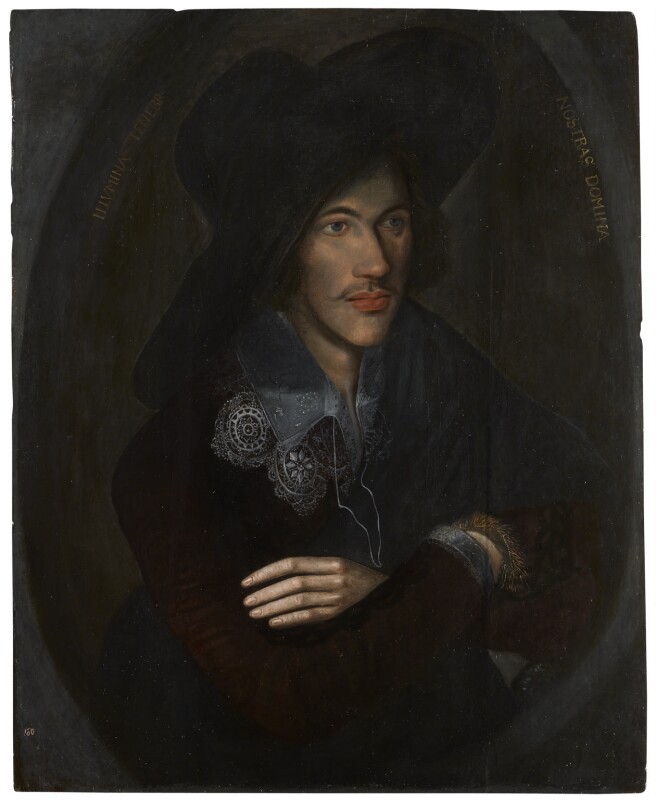John Donne Quotes
No. 76, preached to the Earl of Carlisle, c. autumn 1622
LXXX Sermons (1640)
An Anatomy of the World, The First Anniversary
“And dare love that, and say so too,
And forget the He and She.”
The Undertaking, stanza 5
The Anniversary, stanza 1
VI. Metuit. The physician is afraid
Devotions Upon Emergent Occasions (1624)
“Though Truth and Falsehood be
Near twins, yet Truth a little elder is.”
Satyre III (c. 1598)
No. 18, Love's Progress, line 1
Elegies
Of the Progress of the Soul, The Second Anniversary
I. Insultus Morbi Primus; The first alteration, the first grudging of the sickness.
Devotions Upon Emergent Occasions (1624)
II. Actio Læsa; The strength, and the functions of the senses, and other faculties change and fail.
Devotions Upon Emergent Occasions (1624)
The Funeral, stanza 1
“Oh do not die, for I shall hate
All women so, when thou art gone.”
A Fever, stanza 1
A Valediction Forbidding Mourning, stanza 6
“But think that we
Are but turned aside to sleep.”
Song (Sweetest Love, I Do Not Go), stanza 5
No. 80, preached at the funeral of Sir William Cokayne, December 12, 1626
LXXX Sermons (1640)
No. 3, preached on Christmas Day, 1625
LXXX Sermons (1640)
A Valediction Forbidding Mourning, stanza 7
“The Sestos and Abydos of her breasts
Not of two lovers, but two loves the nests.”
No. 18, Love's Progress, line 61
Elegies
“She, and comparisons are odious.”
No. 8, The Comparison, line 54. Compare: "Comparisons are odious", John Fortescue, De Laudibus Leg. Angliæ, Chap. xix; "Comparisons are odorous", William Shakespeare, Much Ado About Nothing, act iii, scene v
Elegies
IV. Mediscque Vocatur; The physician is sent for.
Devotions Upon Emergent Occasions (1624)
“How deepe do we dig, and for how coarse gold?”
Meditation 13
Devotions Upon Emergent Occasions (1624)
“Nature's lay idiot, I taught thee to love.”
No. 7, Natures Lay Idiot, line 1
Elegies
VI. Metuit. The physician is afraid
Devotions Upon Emergent Occasions (1624)
Song (Go and Catch a Falling Star), stanza 1
Poem Present in Absence http://www.bartleby.com/101/197.html
Attribution likely but not proven http://links.jstor.org/sici?sici=0026-7937(191107)6%3A3%3C383%3ATAO%22HT%3E2.0.CO%3B2-B
“I do nothing upon myself, and yet am mine own executioner.”
Meditation 12
Devotions Upon Emergent Occasions (1624)
“Send home my long strayed eyes to me,
Which (Oh) too long have dwelt on thee.”
The Message, stanza 1
“Batter my heart, three-personed God; for you
As yet but knock, breathe, shine, and seek to mend.”
No. 14, line 1
Holy Sonnets (1633)
Modern version: No man is an island, entire of itself; every man is a piece of the continent, a part of the main; if a clod be washed away by the sea, Europe is the less, as well as if a promontory were, as well as if a manor of thy friends or of thine own were; any man's death diminishes me, because I am involved in mankind; and therefore never send to know for whom the bell tolls; it tolls for thee.
Meditation 17. This was the source for the title of Ernest Hemingway's novel.
Devotions Upon Emergent Occasions (1624)
The Ecstasy, line 45
“Ah cannot we
As well as cocks and lions jocund be,
After such pleasures?”
Farewell to Love, stanza 3
Songs and Sonnets (1633), The Good-Morrow
